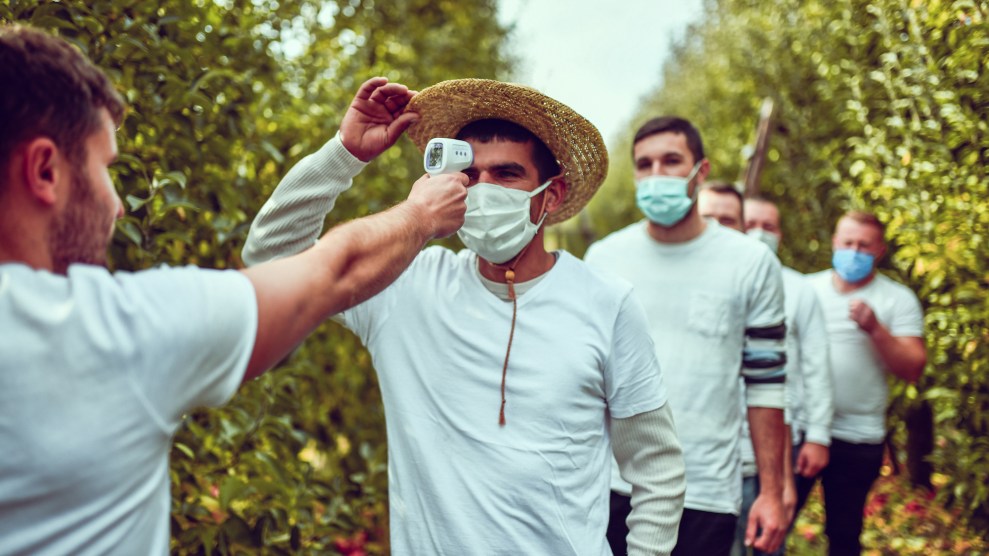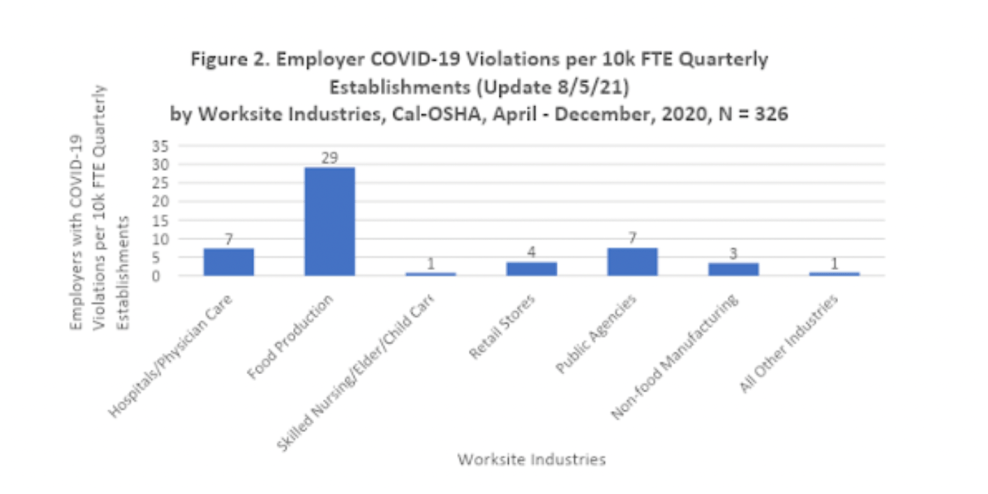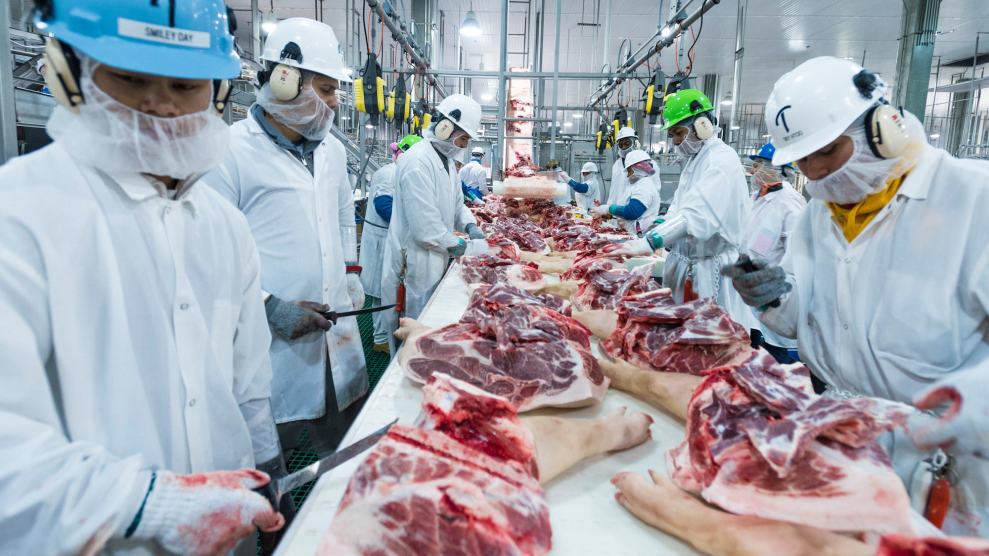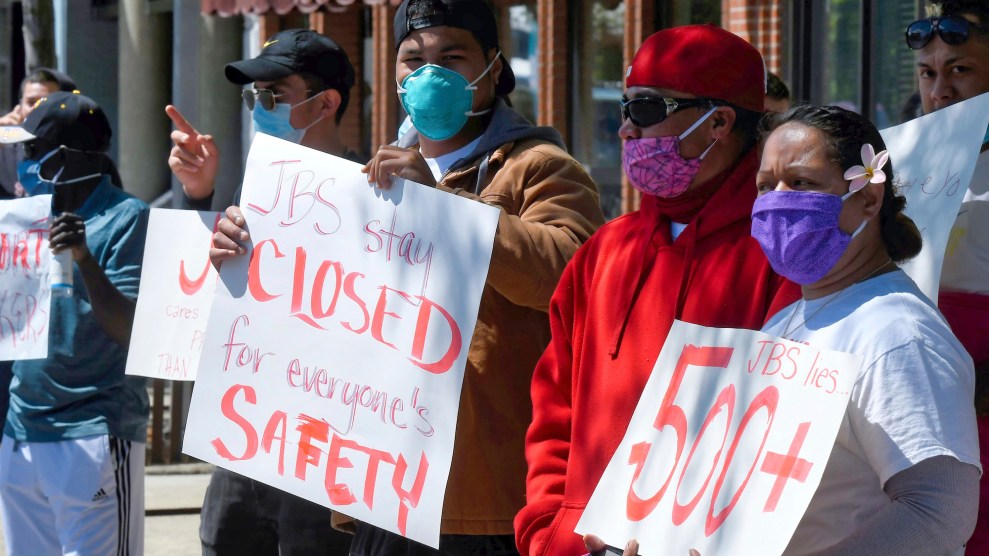
Aleksandar Georgiev/Getty
At the height of the Covid-19 pandemic, millions of Americans continued their jobs from the safety of home. But you can’t break down a chicken carcass or harvest a strawberry via Zoom. To keep slaughterhouses and farms humming, a portion of the workforce had to keep showing up, often toiling shoulder to shoulder. Generally speaking, their employers did not do a great job of shielding these “essential workers” from the harms of Covid.
A new study shines a bright light on just how bad things were for food workers in California, the state with the most food-production jobs and highest agricultural output. From April 2020 through December 2002, the report found, food-production facilities (think farms, meat-processing plants, produce packing houses) got cited for violations of Covid protocol more than all other industries combined—and at four times the rate of any single industry, including other high-risk ones like hospitals, nursing homes, and prisons.
“Decades-long systemic failures, entrenched food production cultures that sacrifice worker health and safety for profits, and industry-state compromises are all implicated in the disproportionate burdens of harm documented in this report,” authors Don Villarejo, Dvera Saxton, and Ildi Carlisle-Cummins of the California Institute for Rural Studies state.
Their eye-popping result came from crunching data from the California Division of Occupational Health and Safety (Cal/OSHA), the agency responsible for enforcing workplace safety laws in the state. The researchers looked at Cal/OSHA citations of employers for failing to follow COVID-19 regulations, which included requiring employers to provide face masks, enforce physical distancing, and notify public-health agencies of outbreaks in a timely manner.
Here’s a look at the results. Note that “public agencies” refers mostly to correctional facilities such as prisons and jails, Saxton says.

Getting dinged by Cal/OSHA so often did not make food-production workplaces safer than those of their peers, though. A 2021 University of California, San Francisco, study found that the state’s food and agriculture workers experienced a 39 percent jump in deaths during the pandemic’s first phase—significantly higher than their counterparts in any other industry.
The Cal/OSHA numbers are just the latest way the Covid crisis has exposed the grim safety conditions faced by the workers who stock US grocery stores and restaurant larders. Within the pandemic’s first year, at least 44 percent of US meatpacking workers tested positive for Covid, and 269 died, a 2021 report from the US House Select Subcommittee on the Coronavirus Crisis concluded. It added: The meat industry “prioritized profits and production over worker safety, continuing to employ practices that led to crowded facilities in which the virus spread easily.”
As for fruit and vegetable harvesters, a 2021 Berkeley analysis found that farmworkers tested positive for Covid at four times the rate of their peers in other occupations in one of California’s most agriculture-intensive counties between June and November 2020.
The question now is whether all the revelations will make a difference going forward. Just as they did pre-pandemic, meatpacking workers endure repetitive-stress injuries at shockingly high rates; whereas farm workers, on top of chronic low pay and a long-brewing housing crisis, face the prospect of deadly heat stress from ever-rising temperatures due to climate change. The demographics of two workforces are similar: disprortionately people of color, many of whom are immigrants. In California, the Cal/OSHA researchers suggest, the state should create a new occupational health agency that will “prioritize the needs and concerns of BIPOC [Black, Indigenous, and people of color] and immigrant workers, with a special division dedicated to food production workers.”

















